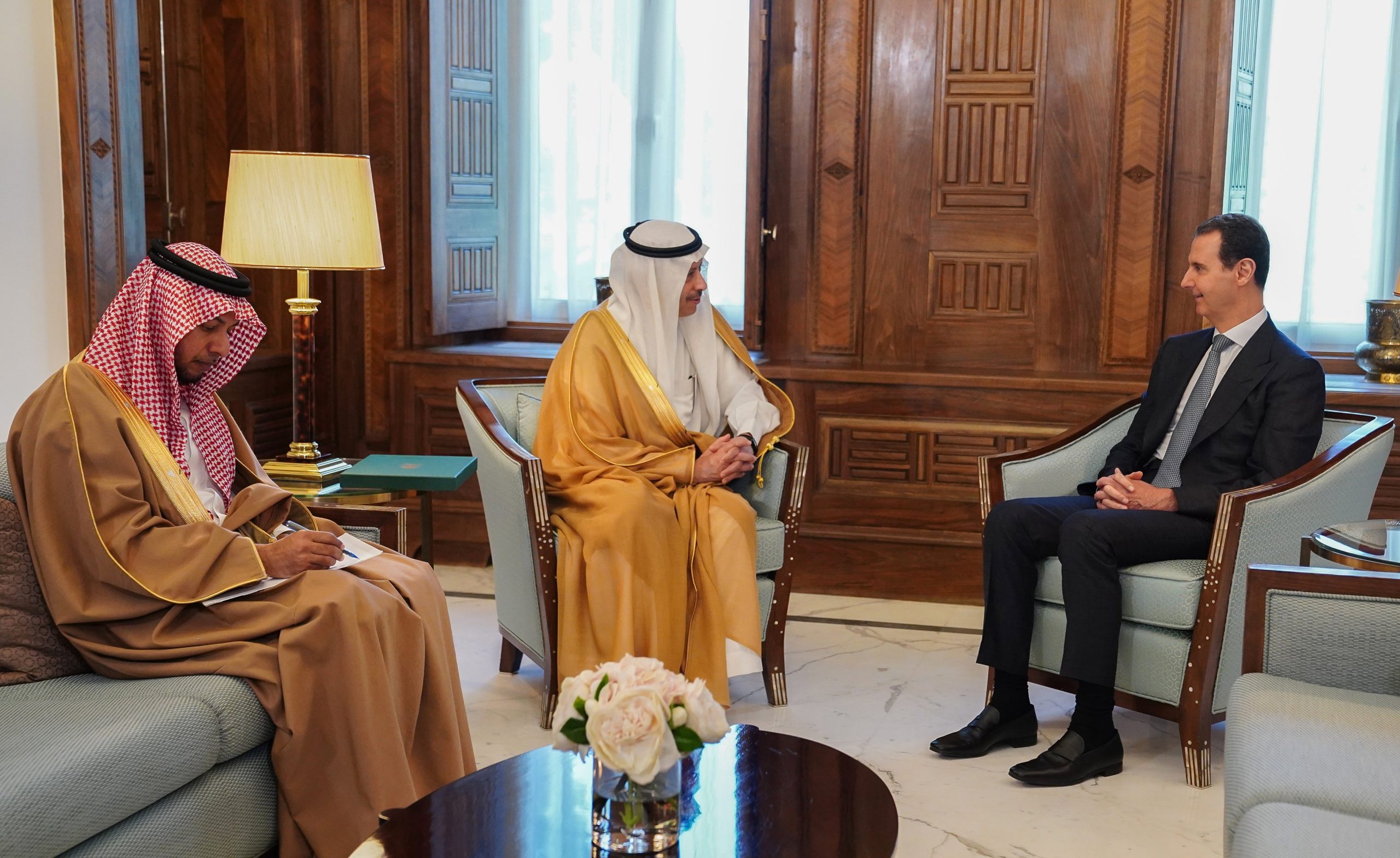Qatar repeatedly renewed its stance against normalising with the Syrian regime, saying the decision to suspend it from the Arab League remain.
Saudi Arabia on Wednesday sent an invitation to Syrian President Bashar Al-Assad to attend the upcoming Arab League summit, scheduled to take place in Jeddah on 19 May.
“The Custodian of the Two Holy Mosques, King Salman bin Abdulaziz Al Saud, has invited the President of the Syrian Arab Republic, Bashar Al-Assad, to participate in the 32nd Regular Session of the Arab League Council Meeting,” Riyadh’s news agency (SPA) reported.
According to SPA, Saudi Arabia’s ambassador to Jordan Naif Al-Sudairi delivered the invitation to Assad in Damascus.
Qatar’s Amir Sheikh Tamim bin Hamad Al Thani also received an invitation to attend the regional summit, the Amiri Diwan announced earlier.
“His Highness the amir receives a written message from his brother, the Custodian of the Two Holy Mosques King Salman bin Abdulaziz Al Saud, King of the brotherly Kingdom of Saudi Arabia, which includes an invitation to His Highness to participate in the 32nd Arab Summit,” the statement read.
The senior-level Arab League summit is the first to be held with the attendance of Syria following its reinstatement into the bloc after nearly 12 years.
The 22-member organisation suspended Syria’s membership in 2011 over the Assad regime’s violent crackdown on peaceful pro-democracy protests, plunging the country into a years0long war and a major humanitarian crisis.
Over the last few years, countries in the region have warmed up to the Assad regime, some of which normalising ties with Damascus as early as 2021. Saudi Arabia became the latest to rekindle relations with Syria.
On Tuesday, Saudi Arabia and Syria agreed to reopen their embassies for the first time since the former cut off ties with Damascus in 2012.
Meanwhile, Qatar has vowed to maintain its position against normalising with the Assad regime, saying its stance has remained unchanged despite the Arab League’s decision to readmit Syria.
In a statement to state news agency (QNA) on Sunday, Qatar’s foreign ministry spokesperson Dr. Majed Al Ansari said while Doha “always seeks to support achieving Arab consensus and will not be an obstacle”, its unilateral decision on the matter is “linked primarily to progress in the political solution that fulfills the aspirations of the Syrian people”.
Dr. Al Ansari added that Qatar still aims “to work with the Arab brothers in achieving the aspirations of the Syrian people for dignity, peace, development and prosperity”.
He said Qatar hopes for “this consensus to be a motive for the Syrian regime to address the roots of the crisis that led to its boycott”. The Qatari official further called on the regime to improve its ties “with its Arab surroundings in a way that enhances security and stability in the region.”
In a meeting in Amman last week, reports pointed to conditions being presented to the Assad regime, including the safe return of millions of refugees to Syria as well as action to combat drug trafficking.
However, analysts and Syrian advocates believe Assad will not change his behaviour.
Speaking to Doha News on Monday, Omar Alshogre, the Director for Detainee Affairs at the Syrian Emergency Task Force, said he does not see the regime changing “its criminal behaviours”.
Alshogre is a former detainee who lived through mental and psychological torture in Assad’s prisons.
“What Assad and every politician and Arab ruler can learn from this is that; you can kill, rape, displace, and torture your people one by one, and you will still be welcome. How could refugees return if the reason behind their refuge still exists?” Alshogre said, questioning the bloc’s decision.
According to the Syrian Network for Human Rights (SNHR), at least 1,271 civilians, including 229 children, and 104 victims of torture were killed in Syria in 2021 alone.
By 2021, the registered number of refugees from Syria reached 5.5 million.
In addition to the shelling of civilians, the Assad regime has carried out horrifying methods of torture, some of which were exposed in 2014 through the Caesar photographs.
Leaked by a defected Syrian military photographer, more than 28,000 photos of deaths under government custody displayed the cruelty of the regime.
A 2017 Amnesty report has also found that at least 17,723 people have been killed in the regime’s custody between March 2011 and December 2015, with an average of 300 deaths occurring each month.
“Presidents die, regimes fall and the only one that stays is the people. Assad will die, the Syrian regime will fall and the only one staying is the people of Syria. The people will remember who stood on their side and who welcomed their killed, raper, and killer!” Alshogre added.







